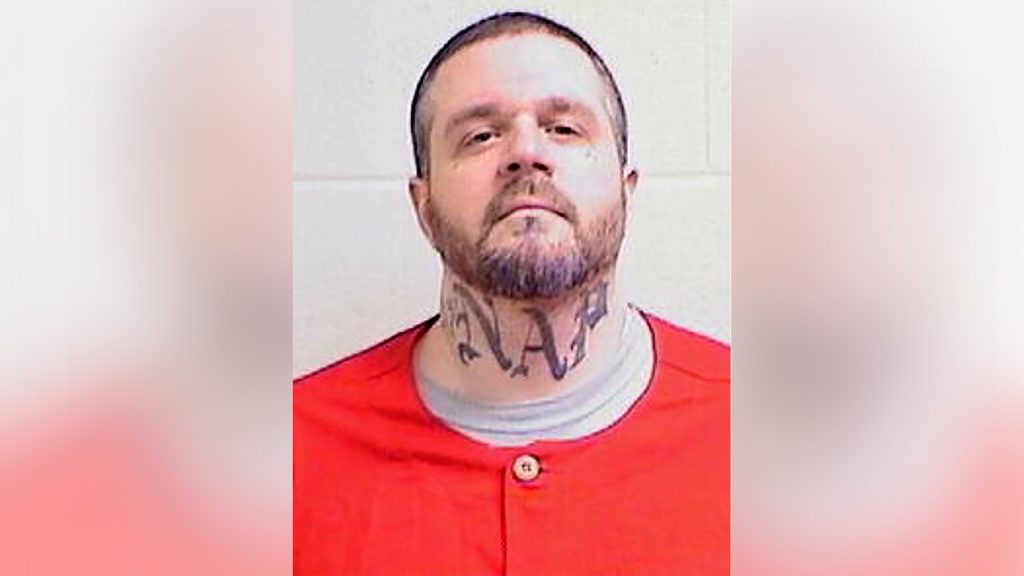An Indiana man has been executed by lethal injection for the fatal shooting of a police officer in 2000. Benjamin Ritchie, 45, had spent over two decades on death row after being convicted of killing Beech Grove Police Officer Bill Toney during a police chase. His execution marks the second in Indiana in 15 years, occurring just hours after the U.S. Supreme Court declined to intervene in his case.
| Article Subheadings |
|---|
| 1) Background of the Crime |
| 2) Legal Proceedings and Appeals |
| 3) Execution Ceremony and Reactions |
| 4) Emotional Impact on Families |
| 5) Observations on Death Penalty |
Background of the Crime
In 2000, Benjamin Ritchie was involved in a violent crime that left Beech Grove Police Officer Bill Toney dead. Ritchie, then 20, was part of a group that stole a van. During a subsequent foot chase, he fired upon Officer Toney, fatally injuring him. At the time of the crime, Ritchie was already on probation due to a prior burglary conviction. This tragic incident marked a significant loss for the Beech Grove community, as Toney was not only a dedicated public servant but also a husband and father of two young children. The crime was particularly impactful due to Toney’s relatively short tenure with the police department, having served just two years before his untimely death.
Legal Proceedings and Appeals
Ritchie’s path through the legal system began shortly after the crime, culminating in his conviction in 2002. His legal team contended that he received ineffective counsel during his trial, claiming his attorneys failed to adequately investigate or present evidence regarding his mental health status—particularly issues stemming from fetal alcohol spectrum disorders and exposure to lead as a child. In 2005, he was diagnosed with bipolar disorder. Advocates for disability rights argued that Ritchie’s mental health should exclude him from the death penalty, asserting that executing someone with significant brain damage is ethically troubling. Despite these arguments, the Indiana Supreme Court and federal courts consistently upheld his death sentence, stating that his legal representation met minimum standards.
Execution Ceremony and Reactions
Ritchie was executed at the Indiana State Prison in Michigan City, with the lethal injection taking place shortly after midnight. The execution began after the U.S. Supreme Court declined to intervene on Ritchie’s behalf, exhausting his legal options. His last meal was reported to be from a popular restaurant, Olive Garden. Attending the execution were five witnesses, including his attorney, Steve Schutte, who described the atmosphere as somber. “I couldn’t see his face. He was lying flat by that time,” Schutte later recounted. Ritchie’s execution was controversial, drawing both supporters and opponents of the death penalty to the prison, with public demonstrations reflecting the divided sentiment. Some argued that executing Ritchie served justice for Toney’s sacrifice, while others protested the death penalty itself.
Emotional Impact on Families
The execution process stirred profound emotions among both the victim’s family and Ritchie’s relatives. Dee Dee Horen, Toney’s widow, emphasized a sense of closure, stating, “It’s time. We’re all tired. It’s time for us to remember Bill, to remember Bill’s life, and not his death.” Her statement illustrates the lingering pain and grief that follows violent crime, not easily mended by the finality of an execution. On the other hand, Ritchie’s family expressed sorrow for the irreversible actions that led to his death. Advocacy groups have pointed out that such cases highlight the complexities surrounding justice and vengeance, calling into question whether executions genuinely provide closure or perpetuate cycles of trauma.
Observations on Death Penalty
The Indiana execution delves into broader conversations about the death penalty in American society. Anti-death penalty advocates argue that the system is fraught with inequities, particularly concerning mental health and socioeconomic factors. Indiana has restrictions concerning media access during executions, making it one of only two states, alongside Wyoming, to bar media witnesses. This lack of transparency was challenged in court but was upheld by a federal judge. As a result, the execution of Ritchie and others lack the public scrutiny that many advocates believe is necessary for accountability. With multiple states carrying out executions this year and Indiana having resumed this practice after a lengthy hiatus, the conversation surrounding capital punishment continues to spark intense debate.
| No. | Key Points |
|---|---|
| 1 | Ritchie was executed for the 2000 shooting of Officer Toney. |
| 2 | The execution was the second in Indiana in 15 years. |
| 3 | Ritchie’s legal team argued ineffective counsel and mental health issues. |
| 4 | Public reactions were deeply divided regarding the execution. |
| 5 | The execution highlighted ongoing debates on the ethics of the death penalty. |
Summary
The execution of Benjamin Ritchie serves as a stark reminder of the complexities and controversies surrounding the death penalty in the United States. While it aims to deliver justice for victims and their families, it also raises questions about the effectiveness and ethics of capital punishment, particularly concerning those with mental health issues. The emotional landscapes post-execution illuminate the profound impacts such acts have on all involved, underscoring the need for continued dialogue on justice, redemption, and the value of human life.
Frequently Asked Questions
Question: Why was Benjamin Ritchie sentenced to death?
Ritchie was sentenced to death for the fatal shooting of Beech Grove Police Officer Bill Toney during a foot chase in 2000.
Question: What legal arguments were made against Ritchie’s execution?
Ritchie’s legal team argued that he received ineffective counsel and that his mental health issues should have excluded him from the death penalty.
Question: What was the public’s reaction to the execution?
Public reaction was divided, with some attending to honor Officer Toney and others protesting against the death penalty, highlighting the ongoing debate surrounding capital punishment.


